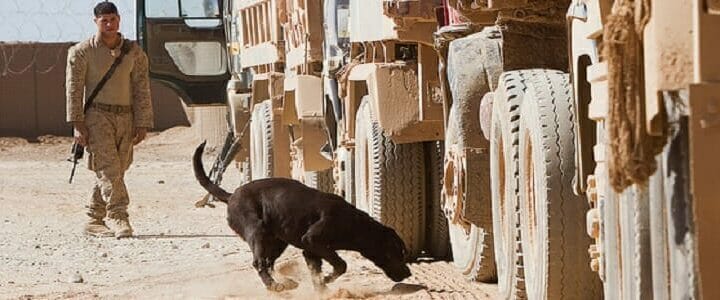Some men fight for freedom. Some men fight for glory. Some men fight for money. Some men fight because they have no other choice. And some men fight simply because they’re bloodthirsty psychopaths who love to inflict pain on other human beings.
You can put Jalaluddin Haqqani down in the last category.
The ruthless leader of the notorious Haqqani Network which has been fighting in Afghanistan since 1975 – more than four years before the Soviet invasion – died this week after a long illness. The Afghan Taliban, with whom his terrorist network has an alliance, confirmed his death in a public statement.
Haqqani gave up operational control of his organization to his son Sirajuddin, who has also served as the Taliban’s deputy commander since 2015, semi-formally joining the two organizations. But the Haqqani Network has always put its own self-interest first. The acknowledgement that Jalaluddin is dead is significant.
One of the original mujaheddin
Afghan history is complicated, but especially so in the last five decades. Zahir Shah ruled as the last King of Afghanistan from 1933 until he was deposed by his cousin, Mohammed Daoud Khan, in 1973. Daoud proclaimed a republic, ruling as president until his 1978 assassination. Communist rule, which led to the Soviet invasion, followed Daoud’s death, but Haqqani’s militants preceded that.
Stanford University’s “Mapping Militant Organizations” project calls Haqqani “One of the earliest Afghan Islamists and an Islamic scholar.” He launched his first terrorist attack in the southeastern Afghan province of Paktika (a place with which I have more than a passing familiarity), on June 22, 1975, killing 12 people.
After the Soviet invasion, he was among the most prominent of mujaheddin leaders, partly because he had such a head start on the killing, and partly because he was close to Pakistan’s Inter-Services Intelligence agency, which acted as a conduit for American dollars flowing to the anti-Soviet rebels. He allied himself with Yunus Khalis, head of one of two political parties calling itself Hizb-i-Islami, literally “Party of God.” The other Hizb-i-Islami party came under the control of Gulbuddin Hekmetyar. (In American intelligence and military shorthand, these two parties would become known as HIK and HIG).
Haqqani was a particularly brutal commando. In his book Soldiers of God (one of several books I took with me on my first Afghan deployment and which I pull from the shelf often) author Robert Kaplan describes Haqqani’s habit of killing prisoners en masse, and mutilating their bodies. But the best description of Haqqani comes from the revered fighter Abdul Haq (who later died in the early days of the U.S. war against the Taliban).
Haq told Kaplan he left Haqqani’s organization because of “how stupid the mujaheddin were. We would build huts that leaked snow from the roof. We would start a fire and burn our faces while feeling cold on our backs. We would go for days without food, when a little planning would have allowed us to eat whenever we wanted.”
In Afghanistan, being tough counts more than being smart.
Alliance with the Taliban
After the Soviet withdrawal and the fall of the communist government, Haqqani continued to resist, joining forces with the nascent Pashtun ethnic movement led by young Islamic scholars that would become the Taliban. He served as Minister for Border and Tribal Affairs, a role for which his roots in the Pashtun frontier made him well suited. After September 11, he retreated to the town of Miram Shah in Pakistan’s North Waziristan region. On my first Afghan tour, we called Miram Shah “al Qaeda central,” because every bomb found in Khost province come from there.
Because he was still a favorite son of the ISI, Haqqani operated with impunity in Waziristan, and was eventually able to spread his influence across much of eastern Afghanistan. When militants attacked the U.S. embassy in Kabul in 2011, Adm. Mike Mullen, the then-chairman of the Joint Chiefs of Staff, openly accused the ISI of maintaining ties to Haqqani.
“With ISI support, Haqqani operatives planned and conducted…the assault on our embassy,” Mullen told the Senate Armed Services Committee, adding, “the Haqqani network acts as a veritable arm of Pakistan’s Inter-Services Intelligence agency.”
That continued support for the Haqqani Network and the Afghan Taliban was behind the Congress’s decision to cut-off $500 million in aid to Pakistan in March, and the Trump administration’s decision to “reprogram” a further $300 million this week, just ahead of a visit by Secretary of State Mike Pompeo.
It’s not clear if the announcement of Haqqani’s death is tied directly to the aid and Pompeo’s visit. If the Taliban were trying to demonstrate turning some sort of new leaf, announcing this development doesn’t do much, as Jalaluddin has been little more than a figurehead for most of the war. But Imran Khan, the recently-elected prime minister of Pakistan, will have a tough time convincing Pompeo that his country is serious about cracking down on the Taliban’s ability to launch cross-border attacks and then retreat to safety across the Durand Line.
Khan, ethnically Pashtun and a former star cricket player, was elected on a “new Pakistan” platform. But that new deal doesn’t necessarily include support for U.S. policy in Afghanistan, and Khan faces an uphill challenge in convincing Pompeo, Trump, and the rest the U.S. national security establishment that he is firmly against the Taliban.
Perhaps Haqqani’s death can pave the way for this new Pakistani leader to stand out from his predecessors and take a strong stance against the ISI’s continued support for the Taliban. I won’t be holding my breath, though.




